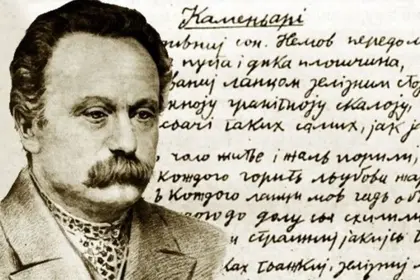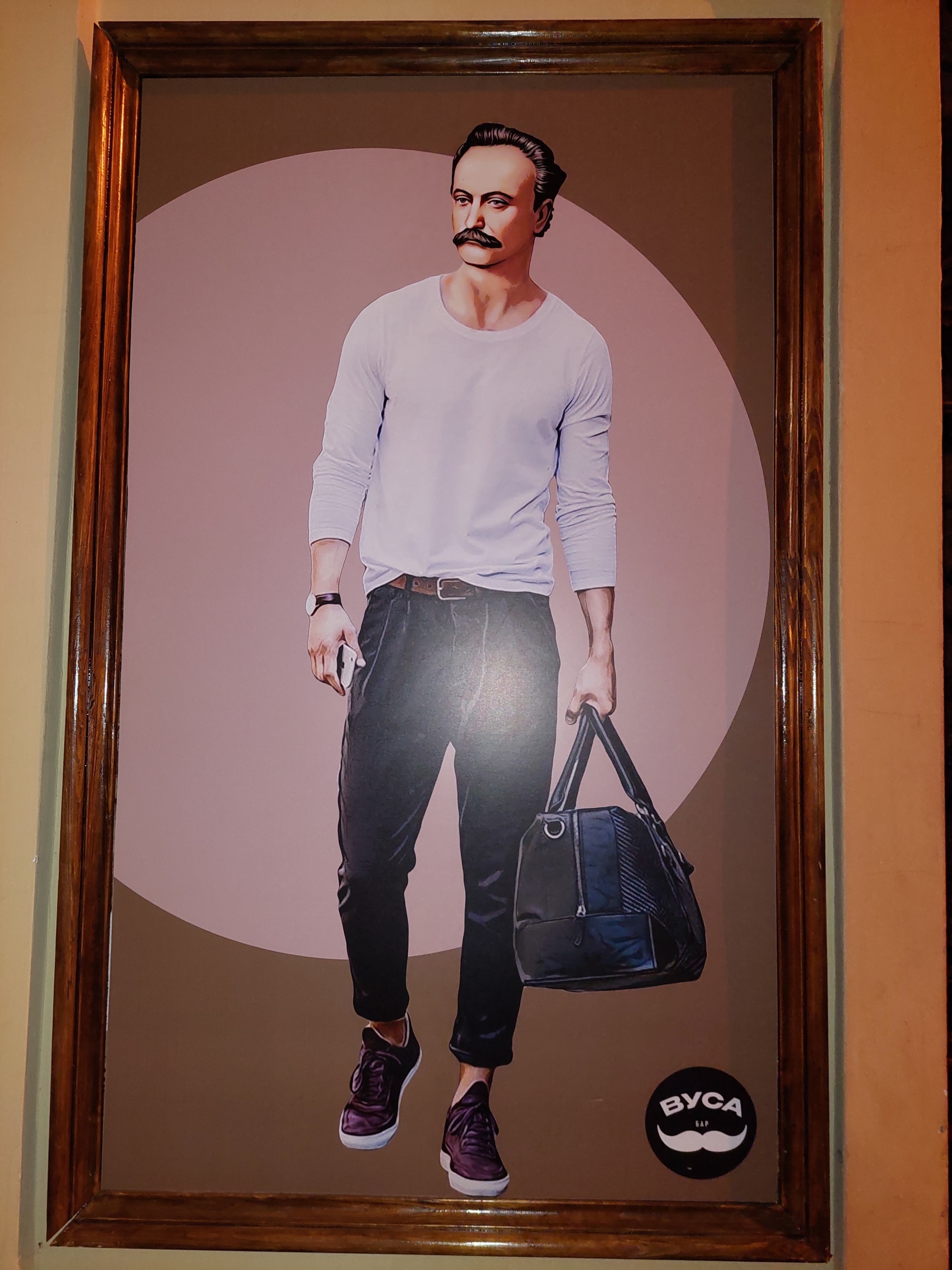One of the greatest modern Ukrainians, poet, writer and political activist, Ivan Franko, was born on Aug. 27, 1856.
He was an exemplary European democrat and one of the first advocates of universal human values and rights. Even though he was nominated for the Nobel Prize in Literature in 1916, proper recognition at home and abroad still awaits him.
JOIN US ON TELEGRAM
Follow our coverage of the war on the @Kyivpost_official.
Recently, a film based on one of his historical works and the publishing of an English translation of his biography have drawn more attention to this remarkable figure. The action movie “The Rising Hawk” had an international cast and was released in 2019. It is based on Franko’s celebrated work Zakhar Berkut and tells a story of early Ukrainians in the Middle Ages holding out in the Carpathian Mountains against the invasion of the seemingly all-conquering Mongols.
This subject was highly relevant for Ukrainians at the turn of the 19th century when Franko wrote his masterpiece. Ukrainian lands were divided between the vast authoritarian Russian Empire in the east and the more liberal Austro-Hungarian Empire of the Habsburgs in the west, with its capital in Vienna. The Habsburgs played off the more dominant Poles in Eastern Galicia, part of today’s Western Ukraine, against the Ukrainians.
An interested reader will also find a lot of inspiring information about the young Franko and his times in the English version of the Ukrainian bestseller «Ivan Franko and his Community» by the eminent historian Yaroslav Hrytsak.
The biography covers the first half of his life and tells how the son of a provincial blacksmith born in 1856 in multi-ethnic Habsburg Galicia became an outstanding man of letters, a visionary and a political navigator for his oppressed nation, as well as a beacon for all progressive mankind.
The book received rave reviews from some of the world’s leading historians and intellectuals. Timothy Snyder describes it as “a study of one of the most intriguing Ukrainian activists of a century ago by one of the most important Ukrainian thinkers of today.” Larry Wolff calls it brilliant, and concludes that “Franko emerges as a dynamic, complex figure whose life and work were deeply important for the history of politics and ideas.”
Franko was not just a literary, political and moral giant but, at the same time, very much a human being, sensitive, often misunderstood and lonely. Another reviewer, Canadian historian John-Paul Himka, reminds us that the «peasant boy….born aloft into higher social spheres by the sheer power of his talent», was «forever falling in love and making hot-headed marriage proposals.”
Franko owed his rise to fame not only to his enormous talent, but also to discipline, intrepid commitment to the cause of social, national and intellectual emancipation and hard-work bordering on workaholism, which inevitably impacted his health. A remarkable erudite and a polyglot, he wrote in Ukrainian, Polish and German and equally impressed leading intellectual figures within the local Polish and Jewish communities from Vienna to Kyiv as well as his compatriot peasants, workers and students.
The sheer scope of his oeuvre is staggering. The latest collection of his poems, novels, newspaper and other articles, letters, translations and scholarly writing, compiled and published in Ukraine amounts to 50 volumes.
Franko’s life was far from that expected of an intellectual star. His radical views and activism led to his being imprisoned on several occasions and difficulties in obtaining posts he was qualified for. A living bridge between the nascent Ukrainian movement in the Russian-ruled Ukraine and Galician patriots, he risked travelling to Kyiv a few times and was involved in smuggling banned Ukrainian works across the border.
At home his freethinking, outspokenness and socialist views made him enemies, who denounced him as a “decadent.” He lived on the verge of poverty, supported by colleagues and admirers, and was to die a pauper.
In his final years, when afflicted by poor health, he had to live under a Russian occupation of Lviv in 1914-15, in the early part of World War One, witness the brutal Russian suppression of Ukrainian life, and narrowly escaped deportation. Meanwhile, his sons Petro and Taras fought in Ukrainian units within the Austrian army against the Russians.
Franko’s private life was far from happy. Political persecution by the Habsburg authorities prevented him from marrying his first great love, a priest’s daughter.
In 1886 he married Olha Khoruzhynska from Kyiv and lived with her for a while in Vienna. But after the death of their first-born son she progressively developed a mental illness.
Franko became infatuated with several women who spurned his advances and only increased his melancholy. Lyrical and love poems reflecting his frustrated hopes appeared alongside his fiery political and classic literary works.
Thwarted in love, Franko poured all his energy into his work and public activism. He keenly followed and contributed to the rich intellectual, cultural and political life in central Europe at the turn of the century. He did not simply absorb uncritically, but forged his own position on the key issues of the day.
For instance, as a socialist, he soon saw the totalitarian elements lurking in the works of Karl Marx and did not hesitate to reject them and warn fellow socialists. He was the first to speak out against hypocrisy and bigotry within Ukrainian patriotic circles, too.
Committed to social progress and emancipation, Franko criticized the more conservative features of religion, including those of the Ukrainian Greek Catholic Church, which played such an important role in the preservation and development of Ukrainian national identity in Eastern Galicia.
Although some clerics refused to pray for his soul after his death at the age of 59 in 1916, the Metropolitan Archbishop of the Ukrainian Greek Catholic Church Andrey Sheptytsky, himself an outstanding leader, who in his own way wanted to support the social and national rights of his people, acknowledged Franko’s importance and greatness by officiating at a religious commemorative service for him.
Ironically, Franko was an atheist, and yet he masterfully used Biblical plots to get his messages across. In his celebrated poem Moses, he compared the stateless Ukrainian nation divided between rival empires to the confused and wretched Israelites wandering in the desert for 40 years until their spiritual leader eventually led them into the Promised Land.
He was convinced that Ukrainians too would one day be united in an independent democratic state, which would reclaim its rightful place within the family of free European countries.
Franko’s dream eventually came true but, knowing him, this romantic realist and “constant revolutionary” would have had plenty to say about how things have turned out.
An earlier version of this article appeared in Panorama, the magazine of Ukrainian International Airlines, in its January 2020 issue.
You can also highlight the text and press Ctrl + Enter




